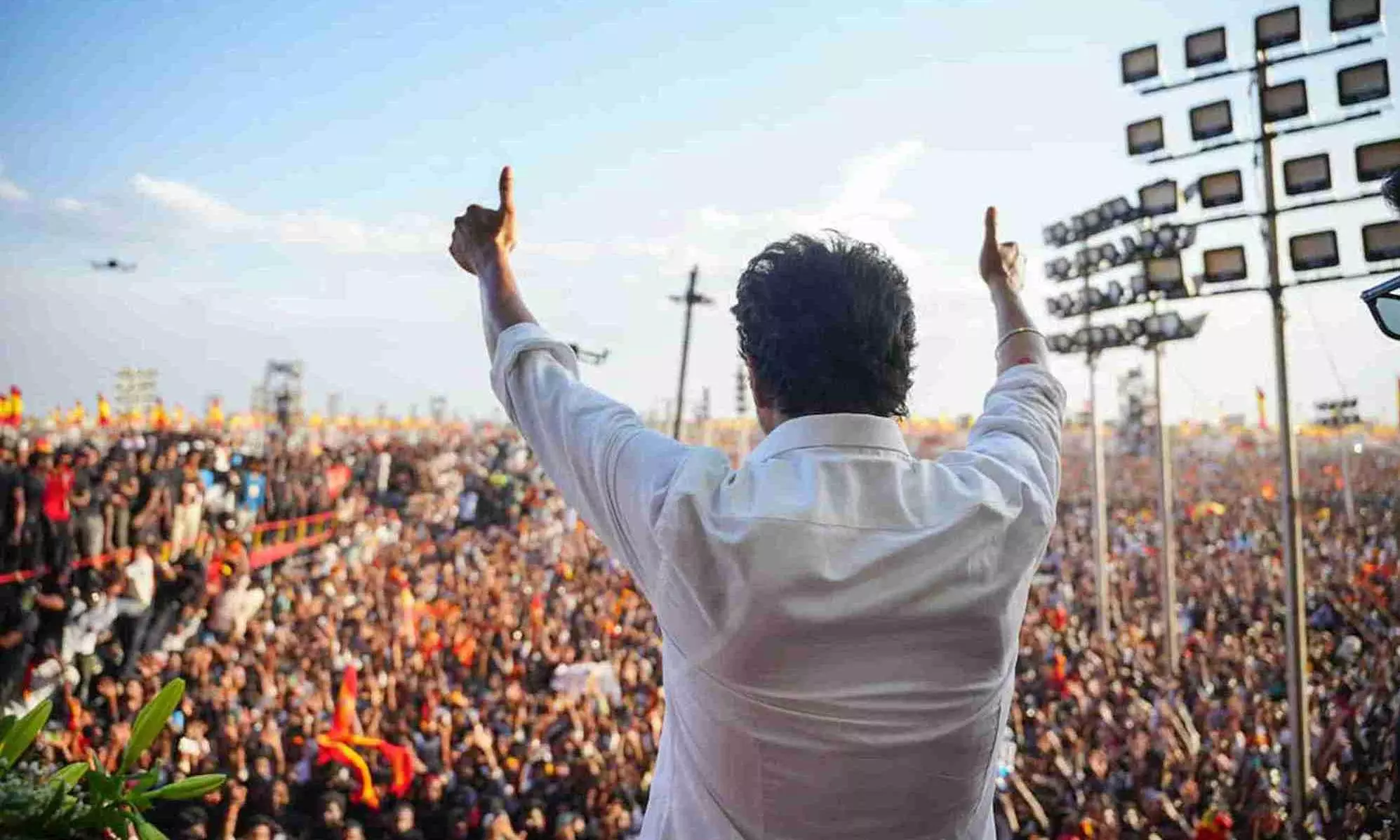
TN curbs political rallies after Karur tragedy, makes organisers liable for fatalities
The state govt enforces stricter rules for public gatherings, bans rallies on highways, and tasks a judicial commission with fixing accountability and proposing safety protocols

In the wake of the stampede at actor-turned-politician Vijay’s rally in Karur district that claimed more than 40 lives, the Tamil Nadu government has announced stringent regulations for political gatherings, including mandatory dedicated spaces for women, a ban on children under 12 attending events, and full legal liability for event planners in case of deaths.
Also read | Supreme Court to hear TN BJP leader's plea seeking CBI probe into Karur stampede
The measures, set to be rolled out ahead of the 2026 state Assembly elections, represent a seismic shift in public event management, prioritising crowd safety amid rising concerns over unchecked political fervour.
A senior IAS officer, speaking to The Federal on condition of anonymity, revealed that the government has urged the newly appointed Commission of Inquiry to submit an interim report before the end of this month to fast-track preparations and implementation.
Inquiry to fix accountability
Following the September 27 stampede at TVK’s Karur rally, the Tamil Nadu government appointed retired Madras High Court Judge Justice Tmt. Aruna Jegatheesan as the head of a single-member Commission of Inquiry under the Commissions of Inquiry Act, 1952.
The commission's mandate, as outlined in the Tamil Nadu Government Gazette, includes a thorough probe into the causes and circumstances of the stampede. Key terms of reference are:
i.) Fixing responsibility for the lapses that resulted in the tragedy, including the deaths of several persons and injuries to many others.
ii.) Reviewing permissions granted and the extent of compliance with regulations by event organisers.
iii.) Studying existing rules and guidelines for granting permissions and Standard Operating Procedures (SOPs) for political parties to conduct meetings and rallies, ensuring protection for public life and property.
iv.) Suggesting preventive measures to avert such occurrences in the future.
Highways off-limits for rallies
Justice Jegatheesan has been directed to complete the inquiry and submit a bilingual report in English and Tamil within three months of the notification’s issue. In a procedural move, the government has invoked sub-sections (2), (3), (4), and (5) of Section 5 of the 1952 Act, empowering the commission with broader investigative authority, including summoning witnesses and enforcing attendance.
In a recent landmark ruling, the Madras High Court’s Madurai Bench directed that no permissions be granted for political propaganda or rallies on national and state highways henceforth, effectively banning such events on major roads to prevent future mishaps. Notably, the government assured the court that police would withhold approvals for any party to conduct meetings or gatherings until comprehensive guidelines and protocols are framed.
Political outreach meets roadblocks
The Karur tragedy has shaken the state's politics, prompting leaders to rethink their campaign strategies. Former Chief Minister and AIADMK general secretary Edappadi K Palaniswami, who has been on a statewide tour, was denied permission to hold public meetings in Tiruchengode, Kumarapalayam, Namakkal, and Paramathivellore.
Also read | SIT probe will uncover truth on Karur stampede, says Tamil Nadu CM Stalin
Police cited a Madras High Court order prohibiting political parties from holding gatherings along national and state highways, stating it precluded approvals for the requested venues. When contacted, local police confirmed the stance, emphasising adherence to the court's directive to prevent similar risks. Palaniswami’s state-wide tour to mobilise support now faces stricter regulations, highlighting the wider clampdown on pre-election campaigning.
Similarly, DMDK general secretary Premalatha Vijayakant, leading the "Ullam Thedi, Illam Nadi" (Reaching hearts, visiting homes) campaign, encountered hurdles in Krishnagiri last week. A proposed roadshow and van campaign near the new bus stand was vetoed by the police in view of the HC order. However, authorities permitted a public meeting at a stage opposite the Anna Durai statue, allowing her to proceed with moderated outreach.
In Nellai, PMK leader Anbumani Ramadoss's planned walkathon was outright rejected, with police pointing to the Karur incident as a reason for caution. Ramadoss voiced frustration, slamming the blanket ban on highway events as overly restrictive and a source of “dissatisfaction” for grassroots campaigning. “While safety is paramount, such orders hinder our ability to connect with the people,” he stated.

